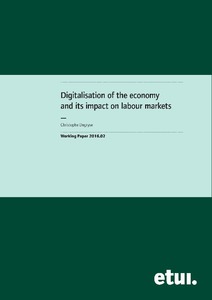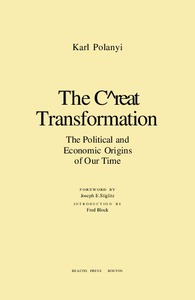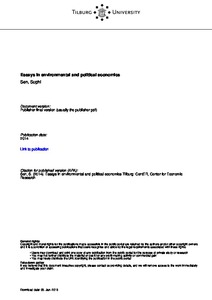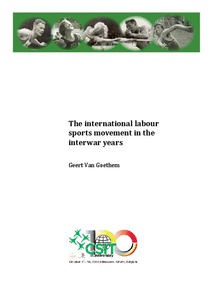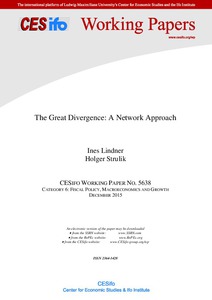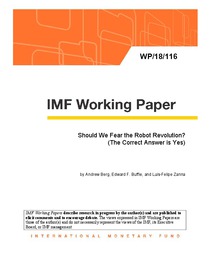-
201Published 1971]“…In: Focal Aspects of the industrial revolution 1325-1842.…”
TEXT -
202Published 1971]“…In: Aspects - Focal - of the industrial revolution 1825-1842.…”
TEXT -
203Published 1971]“…In: Focal aspects of the industrial revolution 1825-1842.…”
TEXT -
204“…Traducción de: The fontana economic history of Europe. The industrial revolution1° ed. de 1979 y reimp. de 1983…”
TEXT -
205Published 1971]“…In: Focal Aspects of the industrial revolution 1825-1842.…”
TEXT -
206Published 1900?.“…2: 1700-1830: the Industrial Revolution / by Michael W. Flinn ; with th assistance of David Stoker. - 1984. - XVIII, 491 p., [4] l. of pl. : ill. - Bibl., index. - ISBN 0-19-828283-4…”
TEXT -
207by Degryse, Christophe“…"This working paper gives an overview of the new possibilities opened up by the 4th industrial revolution and tackles some specific questions in relation to its effects on the labour market, including on the status of employees, on working conditions and on training. …”
Published 2016
TEXT -
208by Polanyi, Karl“…"In this classic work of economic history and social theory, Karl Polanyi analyzes the economic and social changes brought about by the "great transformation" of the Industrial Revolution. His analysis explains not only the deficiencies of the self-regulating market, but the potentially dire social consequences of untempered market capitalism. …”
Published 2001
TEXT -
209by Sen, Suphi“…"Environmental pollution is among the main problems threatening a global sustainable future, and strongly intertwined with the unprecedented rise in economic prosperity since the industrial revolution. The first three chapters deal with two questions: The first question is: Does economic growth, without any intervention, eventually lead to lower levels of pollution? …”
Published 2014
TEXT -
210by Van Goethem, Geert“…"Sport and socialism originated in the industrial revolution, which from the mid-19th century onwards has dramatically altered our society. …”
Published 2013
TEXT -
211by Borsay, Anne“…"Disability and Social Policy in Britain since 1750 explores experiences of physical and mental impairment in Britain since the Industrial Revolution. The book's starting point is the exclusion of disabled people from the full rights of citizenship because of their marginality to the labour market. …”
Published 2005
TEXT -
212Published 2015“…"Machines have been a part of human reality for a long time, however the industrial revolution marked a major breakthrough in the use of machinery and machines. …”
TEXT -
213Published 1999“…Changes in the patterns of employment, the organisation of production and, above all, gender relations have rendered obsolete the classical paradigm of industrial revolution. The implications for the regulation of working time in the Member States are explored with reference to the EU directive on working time (1993), the development of collective bargaining, and the prohibition of indirect discrimination. …”
TEXT -
214“…The diffusion of knowledge throughout the world explains a period of increasing world inequality after the take-off of the forerunners of the industrial revolution, followed by decreasing relative inequality. …”
TEXT -
215“…"We may be on the cusp of a “second industrial revolution” based on advances in artificial intelligence and robotics. …”
TEXT -
216Published 2018“…"The Fourth Industrial Revolution is interacting with other socio-economic and demographic factors to create a perfect storm of business model change in all industries, resulting in major disruptions to labour markets. …”
TEXT -
217by Beckert, Jens“…In this paper, I describe the unfolding of the temporal order of capitalism and relate it to the restless dynamism of capitalism we have observed since the Industrial Revolution. Since the future is open, actors are confronted with the uncertainty of the outcomes of their decisions. …”
Published 2014
TEXT -
218by Degryse, Christophe“…"For better or worse, the digitalisation of the economy has become an unavoidable theme in political and social debates. This new industrial revolution is predicted to disrupt the processes of production, the world of work and society at large. …”
Published 2017
TEXT -
219by Lakner, Christoph“…"In the 2000s, global inequality fell for the first time since the Industrial Revolution, driven by a decline in the dispersion of average incomes across countries. …”
Published 2016
TEXT -
220by Riello, Giorgio“…However, this is not a new phenomenon: until the industrial revolution, Asia manufactured great quantities of colourful printed cottons that were sold to places as far afield as Japan, West Africa and Europe. …”
Published 2013
TEXT

